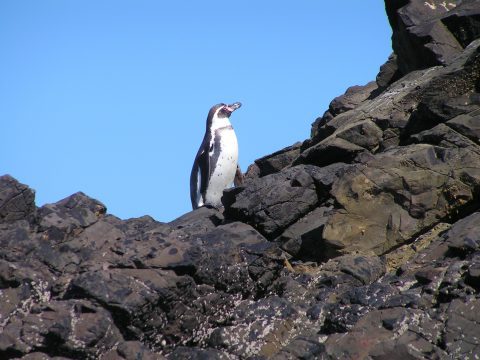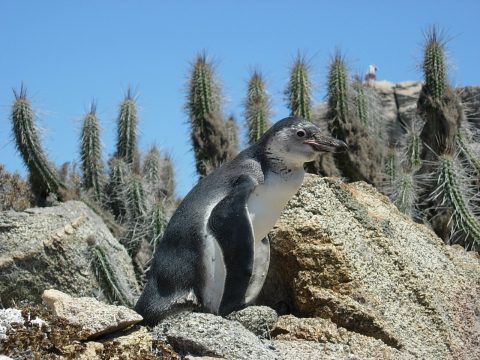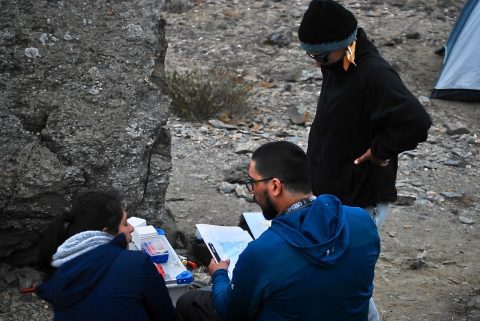Conservation in action
Conservation
Sphenisco- Key Info
- What we’re doing
- What you can do
Conservation in action
Sphenisco
Sphenisco is a non-profit organisation which works with scientists and activists in Chile and Peru to save the Humboldt penguin from extinction, while also raising awareness about the threats they face. Dublin Zoo was one of eight European zoos which helped to create Sphenisco in 2008, and we have been supporting them ever since.
Donate Today
Sphenisco
Sphenisco is a non-profit organisation which works with scientists and activists in Chile and Peru to save the Humboldt penguin from extinction, while also raising awareness about the threats they face. Dublin Zoo was one of eight European zoos which helped to create Sphenisco in 2008, and we have been supporting them ever since.
Protecting Chile and Peru’s penguins
Sphenisco is directly involved in the protection and monitoring of Humboldt penguin breeding colonies, while also campaigning for the creation of marine protected areas. By working with Chilean universities in Santiago and Coquimbo, and partner organisations MODEMA and Ecotourismo, Sphenisco has been able to conduct groundbreaking research on the breeding ecology of the Humboldt penguin. In 2023, they published the first ever comprehensive report on the breeding success of Humboldt penguins on Peru’s Ballestas Islands, which has shown that current reproductive rates are not sufficient to ensure the long-term viability of this colony.

Status in the wild
The Humboldt penguin is considered Vulnerable under the IUCN Red List, with approximately 23,800 left in Chile and Peru. Humboldt penguins are threatened by many things, including predation from feral dogs, nest predation by introduced rats, over-fishing of their prey species (sardines and anchovies), entanglement in gillnets, and disturbance by tourists. Humboldt penguins are also impacted by El Niño, which is the unusual warming of surface waters in the eastern Pacific Ocean. This occurs every 2-7 years and reduces the amount of prey available. El Niño events are likely to increase in frequency and intensity as a result of climate change, which will likely harm the Humboldt penguin.

Updates from the field
Over the last three years Sphenisco has also been working with Chilean and New Zealand researchers to study the population ecology, breeding success and foraging behaviours of Humboldt penguins in Chile. The extensive work studied breeding populations of Humboldt penguins on 10 islands along the coast of north-central Chile. Using GPS trackers and PenguCam camera loggers, the team were able to show that penguins hunt at different ocean depths than previously assumed, and also engaged in co-operative foraging in large groups of 50 or more penguins.

PenguCam
What they say about Dublin Zoo's support
“The support of our member zoos, including Dublin Zoo, is very important to Sphenisco. Dublin Zoo has been a supporter of Sphenisco since 2008, providing financial support to projects in Peru and Chile working to save Humboldt penguins. This support has been instrumental in addressing the threats Humboldt penguins face, raising awareness of the actions local communities can take to protect them, and highlighting the role of zoos in international species conservation.”
– Dr. Christina Schubert, Vice President, Sphenisco
